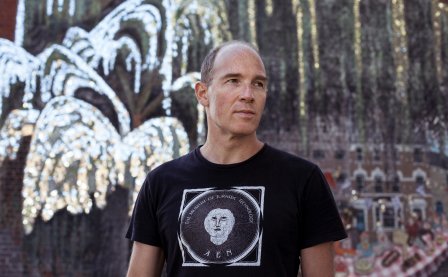Dr. Daniel V. Snaith (recently crowned doctor of mathematics) made explicitly clear that he “wanted no bullshit” on his latest offering, Andorra. “I tried to make every single second maximized as much as possible, cram as many musical ideas as possible,” said Snaith months ago in an interview. Score another victory for Merge, because he sure wasn’t kidding. Apparently making some pretty mindblowing discoveries on a visit to the landlocked country Andorra, Snaith dedicated an entire year to his latest nine-track LP, a semi-concept album placing abstract characters in his own mental Andorra.
Not in quite a while has there been an album that so expertly melds experimental electronica with pop sensibilities. Caribou purists may be surprised by the verse/chorus structures and increased vocal presence dominant on Andorra, but Snaith’s sonic and compositional prowess do more than make up for the more concentrated and poppy form (barring Junior Boys’ Jeremy Greenspan’s vocals and co-authorship on “She’s The One,” Snaith is responsible for every sound and concept on this album). Like Caribou’s other work, Andorra is successful because it operates on multiple levels. Basslines are unconventional, but unobtrusive. Dual drum sets pound away with only occasional stops. Signature flutophone is subtle, yet complex when appropriate.
While the biggest difference between Andorra and Caribou’s previous LP, The Milk of Human Kindness, is the heightened focus on pop composition, Andorra is still most successful when it relies on sonic and dynamic intensity. This is exemplified in the nearly nine-minute “Niobe.” Synths are starkly beautiful in that frozen tundra, Caribou kind of way. Drum rolls tantalize expectations, and when Snaith intersperses well-placed melodic flourishes with vocals shrouded in reverb, the effect is mesmerizing. In the last 50 seconds of the piece, muffled synth leads rise and culminate into something about as perfect as IDM can ever hope to be.
If Andorra does have a fault, it is the occasional overload of sound. There are certainly moments where the melodic intensity is almost too much, like during the cacophonous sonic attack at the end of “Eli,” but Snaith makes it clear from the get-go that he’s not going easy on you, even if you’re just in it for the pop. Whatever you may be in it for, it will be difficult for audiences with an ear for innovation to ignore this album. Andorra is a psychedelic and polyrhythmic trip to a place even less known than the actual country and a momentous addition to Caribou’s enviable discography.
More about: Caribou




